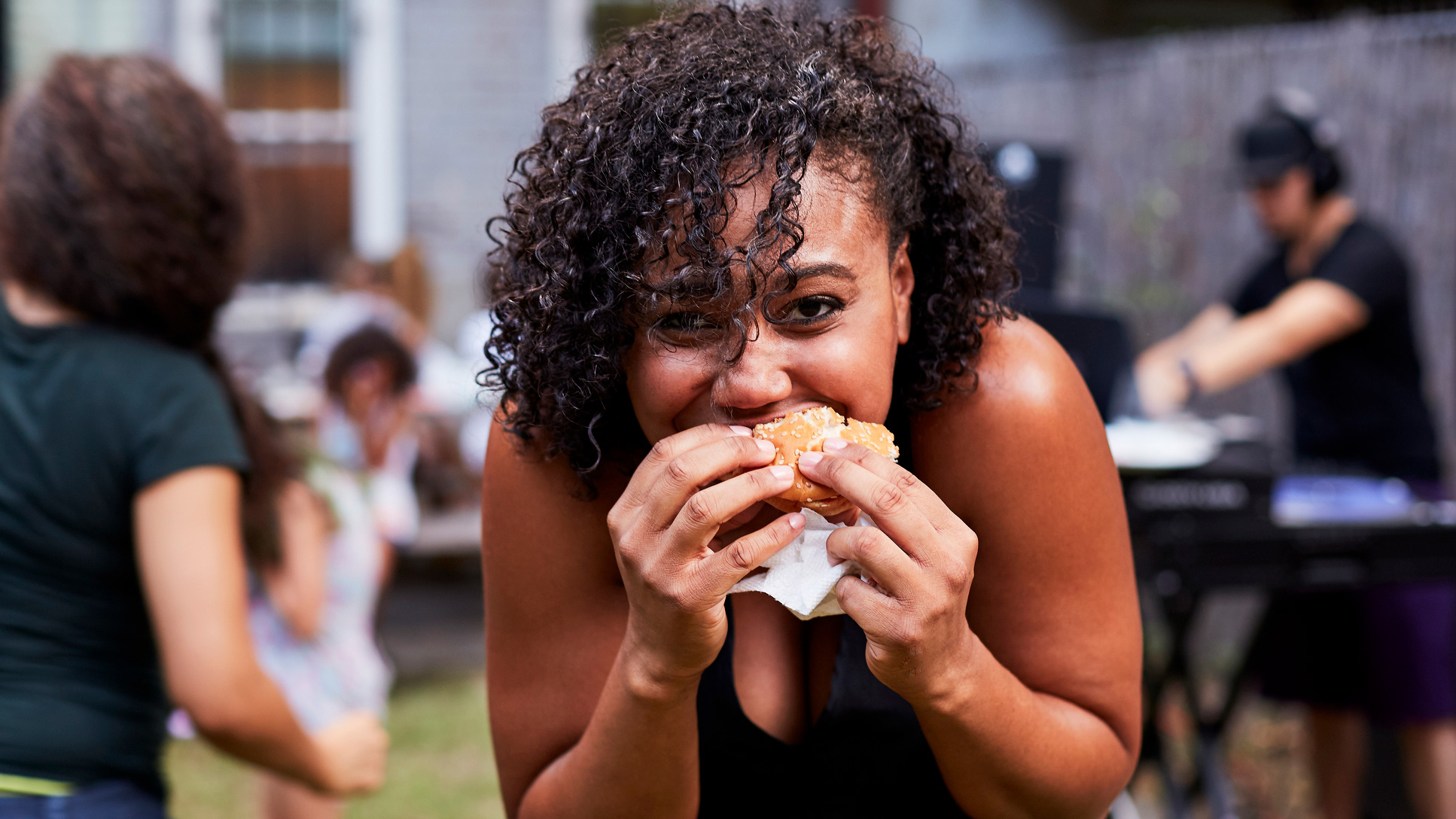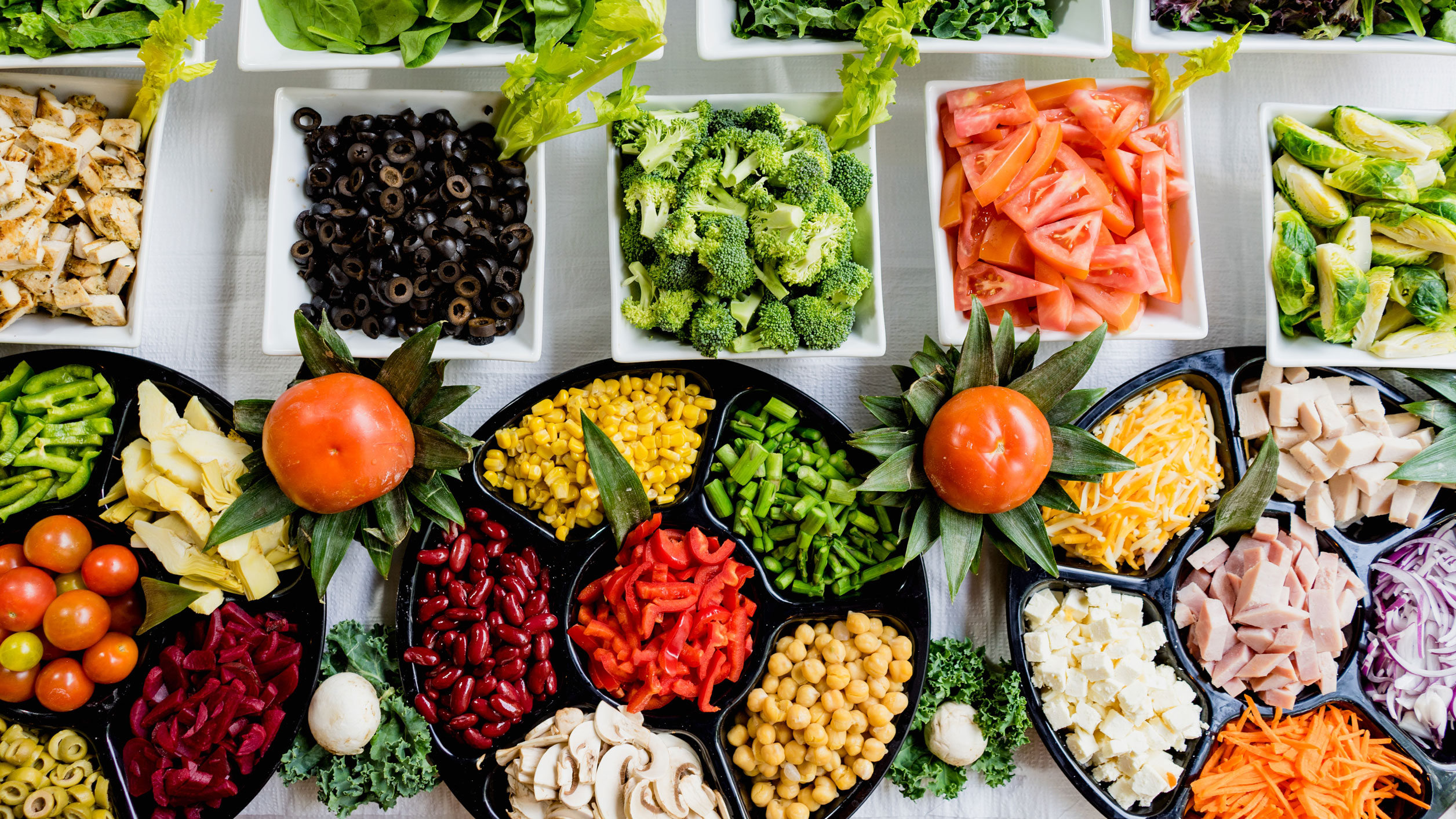How long do you chew for? New research finds slower chewing helps lose weight
Chewing slowly and mindful eating has been found to improve health and encourage weight loss (although no-one knows why)


Start your week with achievable workout ideas, health tips and wellbeing advice in your inbox.
You are now subscribed
Your newsletter sign-up was successful
Are you a slow or a fast chewer? You might think that weight loss is all about what you put in your mouth, but new research has provided a link between the time you spend chewing it and the amount of weight you lose.
As well as exercising portion control, performing the best exercises for weight loss like burpees and kettlebell swings, and trying our best protein powder for weight loss, researchers from Waseda University have found a link between chewing and weight loss.
The researchers, published in the journal Scientific Reports, found the chewing process "reportedly enhances the energy expenditure associated with the metabolism of food and increases intestinal motility". The end result is diet-induced thermogenesis, an increase in heat generation in the body which boosts fat-burning due to the oral stimuli in the mouth. how exactly this happens, however, is unclear.
Professor Naoyuki Hayashi said: "While the difference in energy expenditure per meal is small, the cumulative effect gathered during multiple meals, taken over every day and 365 days a year, is substantial.

"We found diet-induced thermogenesis or energy production increased after consuming a meal, and it increased with the duration of each taste stimulation and the duration of chewing. This means irrespective of the influence of the food bolus, oral stimuli, corresponding to the duration of tasting food in the mouth and the duration of chewing, increased DIT."
Mindful eating, the process of really paying attention to your food while you eat it, has also found to be associated with weight loss, according to one other study. Chewing slowly, savouring your food, and thinking about it (that means turning the TV off while you eat, so you don't mindlessly snack while you watch your favourite streaming service) means you're less likely to keep eating after you're full, making it an exercise in portion control.
Portion control is key if you're trying to change your relationship with food. Check out our portion size guide for more resources on how to eat healthily and manage what's on your plate. Cooking healthier is obviously a bit part of food management too: if you can't shake your fried foods just yet, using one of the best air fryers can help you keep your favorites on the menu and use a fraction of the saturated fats.
Start your week with achievable workout ideas, health tips and wellbeing advice in your inbox.
Matt Evans is an experienced health and fitness journalist and is currently Fitness and Wellbeing Editor at TechRadar, covering all things exercise and nutrition on Fit&Well's tech-focused sister site. Matt originally discovered exercise through martial arts: he holds a black belt in Karate and remains a keen runner, gym-goer, and infrequent yogi. His top fitness tip? Stretch.
